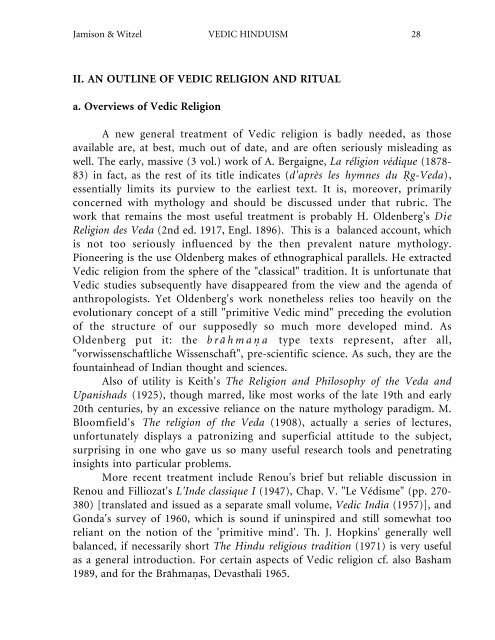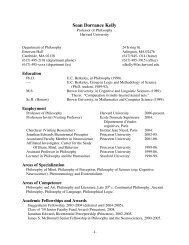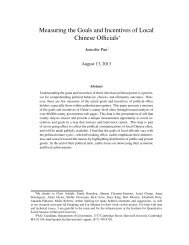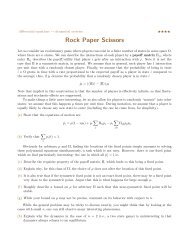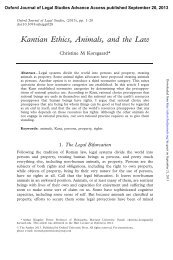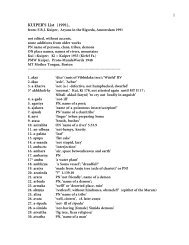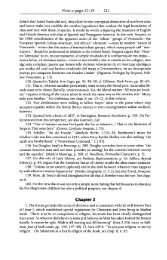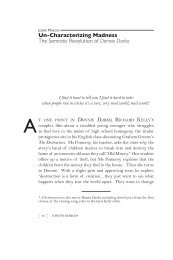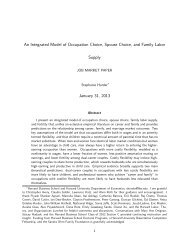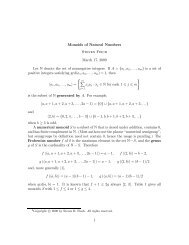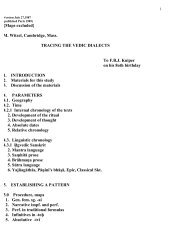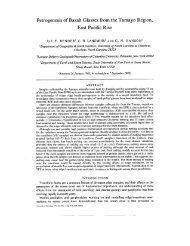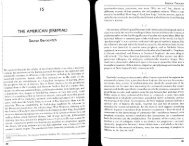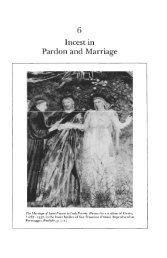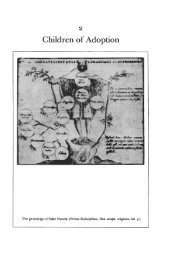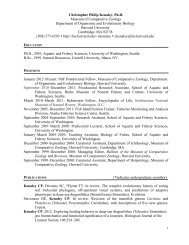VEDIC HINDUISM by S. W. Jamison and M. Witzel - people.fas ...
VEDIC HINDUISM by S. W. Jamison and M. Witzel - people.fas ...
VEDIC HINDUISM by S. W. Jamison and M. Witzel - people.fas ...
You also want an ePaper? Increase the reach of your titles
YUMPU automatically turns print PDFs into web optimized ePapers that Google loves.
<strong>Jamison</strong> & <strong>Witzel</strong> <strong>VEDIC</strong> <strong>HINDUISM</strong> 28<br />
II. AN OUTLINE OF <strong>VEDIC</strong> RELIGION AND RITUAL<br />
a. Overviews of Vedic Religion<br />
A new general treatment of Vedic religion is badly needed, as those<br />
available are, at best, much out of date, <strong>and</strong> are often seriously misleading as<br />
well. The early, massive (3 vol.) work of A. Bergaigne, La réligion védique (1878-<br />
83) in fact, as the rest of its title indicates (d'après les hymnes du �g-Veda),<br />
essentially limits its purview to the earliest text. It is, moreover, primarily<br />
concerned with mythology <strong>and</strong> should be discussed under that rubric. The<br />
work that remains the most useful treatment is probably H. Oldenberg's Die<br />
Religion des Veda (2nd ed. 1917, Engl. 1896). This is a balanced account, which<br />
is not too seriously influenced <strong>by</strong> the then prevalent nature mythology.<br />
Pioneering is the use Oldenberg makes of ethnographical parallels. He extracted<br />
Vedic religion from the sphere of the "classical" tradition. It is unfortunate that<br />
Vedic studies subsequently have disappeared from the view <strong>and</strong> the agenda of<br />
anthropologists. Yet Oldenberg's work nonetheless relies too heavily on the<br />
evolutionary concept of a still "primitive Vedic mind" preceding the evolution<br />
of the structure of our supposedly so much more developed mind. As<br />
Oldenberg put it: the bråhma�a type texts represent, after all,<br />
"vorwissenschaftliche Wissenschaft", pre-scientific science. As such, they are the<br />
fountainhead of Indian thought <strong>and</strong> sciences.<br />
Also of utility is Keith's The Religion <strong>and</strong> Philosophy of the Veda <strong>and</strong><br />
Upanishads (1925), though marred, like most works of the late 19th <strong>and</strong> early<br />
20th centuries, <strong>by</strong> an excessive reliance on the nature mythology paradigm. M.<br />
Bloomfield's The religion of the Veda (1908), actually a series of lectures,<br />
unfortunately displays a patronizing <strong>and</strong> superficial attitude to the subject,<br />
surprising in one who gave us so many useful research tools <strong>and</strong> penetrating<br />
insights into particular problems.<br />
More recent treatment include Renou's brief but reliable discussion in<br />
Renou <strong>and</strong> Filliozat's L'Inde classique I (1947), Chap. V. "Le Védisme" (pp. 270-<br />
380) [translated <strong>and</strong> issued as a separate small volume, Vedic India (1957)], <strong>and</strong><br />
Gonda's survey of 1960, which is sound if uninspired <strong>and</strong> still somewhat too<br />
reliant on the notion of the 'primitive mind'. Th. J. Hopkins' generally well<br />
balanced, if necessarily short The Hindu religious tradition (1971) is very useful<br />
as a general introduction. For certain aspects of Vedic religion cf. also Basham<br />
1989, <strong>and</strong> for the Bråhma�as, Devasthali 1965.


